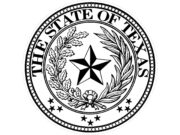Bangor, ME — The right to criticize public officials and government employees lies at the heart of the First Amendment. Yet, for Hampden parent Shawn McBreairty, such criticism prompted the local school board to silence him.
That’s why the Institute for Free Speech has filed an amicus brief urging the First Circuit Court of Appeals to reverse a federal district court ruling and declare unconstitutional the Regional School Unit 22 (RSU 22) policy prohibiting speakers at board meetings from criticizing school personnel.
In the brief, the Institute argues that the policy violates the First Amendment by discriminating against particular viewpoints and unreasonably restricting public debate. The Institute filed the brief in support of McBreairty, a parent who was removed from an RSU 22 board meeting after attempting to criticize school officials by name.
“School board meetings are supposed to give parents and community members a voice in education policy and administration,” said Brett Nolan, Senior Attorney at the Institute for Free Speech. “But the school district is manipulating this public forum to shield itself and other school officials from criticism. The First Amendment prohibits that kind of censorship.”
In its brief, the Institute contends that the policy cannot survive constitutional scrutiny even under the more permissive rules that apply to speech restrictions in limited public forums.
According to the brief:
-
-
- The ban discriminates based on viewpoint by allowing criticism of school policies while prohibiting criticism of the officials responsible for those policies. It skews debate by disfavoring the opinion that policy failings trace back to individuals who create, enforce, or execute such policies.
- Banning all discussion of school personnel is unreasonable because overseeing schools and executing education policy is the core role of district staff. Excluding speakers who believe personnel are to blame for problems in the district distorts debate on school administration in the marketplace of ideas.
- Past precedent upholding bans on “disparaging” speech that the district court relied on has been superseded by more recent Supreme Court decisions invalidating similar restrictions as unconstitutional viewpoint discrimination.
-
Highlighting the unconstitutional inconsistencies created by the rule, the Institute noted that, under the policy, “A comment criticizing school curriculum is fine. A comment criticizing personnel for choosing that curriculum is not. That is quintessential viewpoint discrimination. It targets a single perspective about the cause of school problems for disfavored treatment, prohibiting speakers from expressing that view.”
The Institute urged the First Circuit to reverse the district court’s ruling upholding the constitutionality of the board’s policy. Doing so would strengthen free speech rights for speakers who criticize government employees while also clarifying limited public forum doctrine in the circuit.
To read the amicus brief in the case, McBreairty v. Miller, click here.
About the Institute for Free Speech
The Institute for Free Speech promotes and defends the political rights to free speech, press, assembly, and petition guaranteed by the First Amendment.













